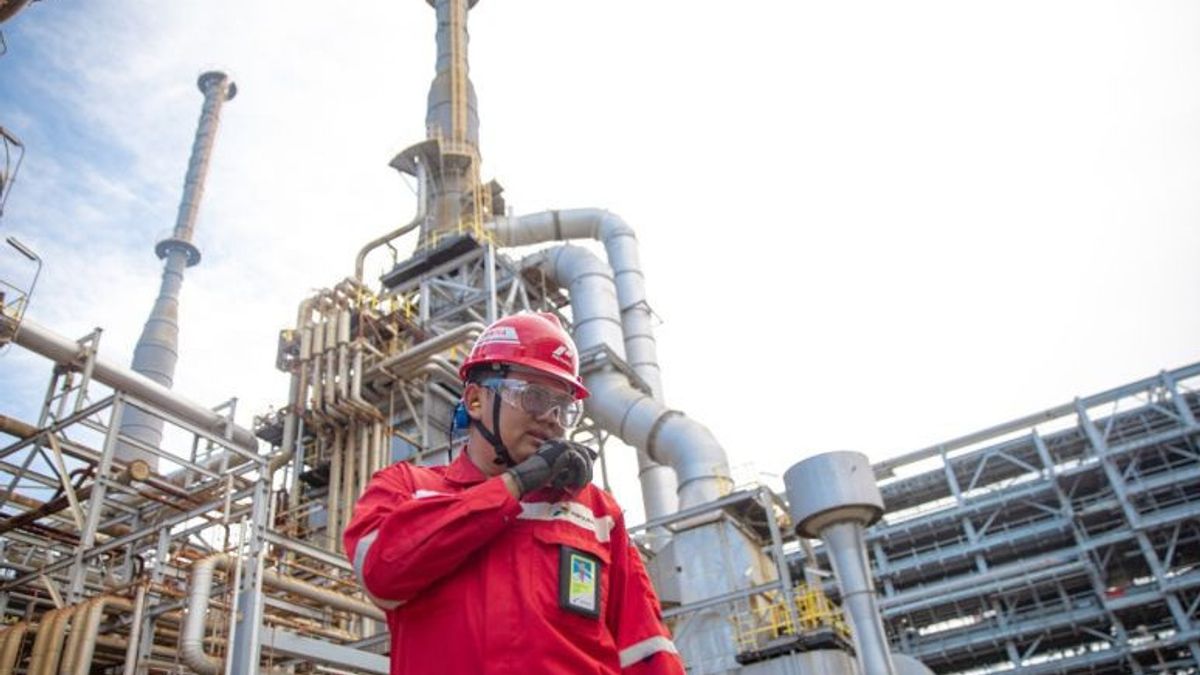JAKARTA - In the midst of the escalation of the Middle East conflict triggered by Israel-Palestinian, the national upstream oil and gas industry is the hope of the Indonesian people in achieving energy security.
Acting Director General of Oil and Gas at the Ministry of Energy and Mineral Resources (ESDM) Dadan Kusdiana in a statement received in Jakarta on Thursday said that the escalation of conflicts in the Middle East risks raising world oil prices to the level of 100 US dollars per barrel or the highest in history (all time high).
According to Dadan, the government can rely on the national upstream oil and gas sector, especially with the opening of new working areas (WK) to increase massive exploration and development activities at this time.
"The potential in Indonesia is still attracting investors. Recently, there have been quite a lot of studies for the opening of new WKs. So, in terms of oil and gas potential, the upstream oil and gas sector in Indonesia is still reliable," said Dadan, quoted from ANTARA, Thursday, May 9.
Nevertheless, he assessed that the upstream national oil and gas sector needs to be supported by investment-friendly policies as well as ease and speed of licensing in order to boost upstream oil and gas performance in the country.
"In the future, improvements to regulations that encourage business people to invest are the main factors in upstream oil and gas performance," he said.
The Directorate General of Oil and Gas noted that the realization of oil and gas investment in 2023 was 15.6 billion US dollars, an increase of 12 percent from 2022 of 13.90 billion US dollars. In detail, upstream investment of 13.72 billion US dollars and downstream investment of 1.88 billion US dollars.
Dadan also emphasized that the Ministry of Energy and Mineral Resources is trying to reduce dependence on oil and LPG imports in response to the government amid geopolitical tensions.
This effort was made by optimizing the use of domestic natural gas for the fertilizer, industrial and electricity sectors through the natural gas downstream program, gasification of diesel-fueled power plants to optimizing gas utilization through a compressed natural gas (CNG) mode.
SEE ALSO:
Meanwhile, Forexindo Berjangka Profit Director Ibrahim Assuaibi stated that the current geopolitical tension has proven to have an impact on world oil prices.
According to him, the escalation of conflicts in the Middle East, especially those that occur in Israel and Iran, is of more concern than other conflicts.
"It must be seen that Iran is one of the third largest oil-producing countries in the world but the world's largest reserves are in Iran, open in Saudi Arabia, so there is a fear that Israel is targeting Iranian oil refineries and making this production will drop drastically," said Ibrahim.
He assessed that Indonesia could take advantage of the threat of a global energy crisis as it is today. Coupled with the United States (US) sanctions against Russia, which is also the second largest oil producing country in the world.
For this reason, he hopes that the government, especially the Ministry of Investment/Investment Coordinating Agency (BKPM) to bring in investors in the upstream oil and gas sector to create national energy security, especially when facing a situation like now where global oil and gas prices become uncertain.
"We see that Indonesia actually has many oil refineries that can be explored. Currently, many of our investors are from China, so it is very likely that the Prabowo-Gibran government in the future can continue to carry out good cooperation with China to explore," he said.
The English, Chinese, Japanese, Arabic, and French versions are automatically generated by the AI. So there may still be inaccuracies in translating, please always see Indonesian as our main language. (system supported by DigitalSiber.id)
















